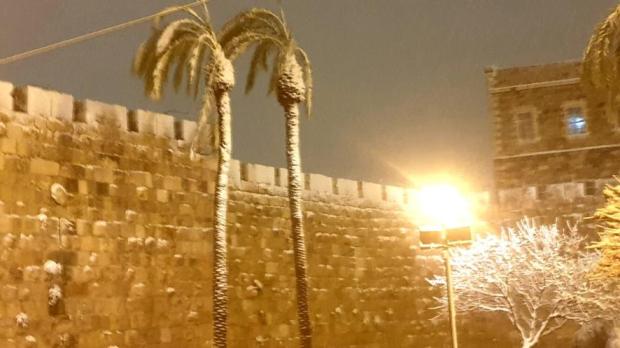Thursday 13 October 2022
~
1. Churches of the Holy Land oppose the transfer of the British Embassy to Jerusalem
2. Will the war in Ukraine influence Catholic doctrine?
3. European Bishops concerned for Ukraine
4. How Catholics become prisoners of Vatican II
5. NGO calls on Pope to denounce religious repression in Bahrain
~
1Churches of the Holy Land oppose the transfer of the British Embassy to Jerusalem
In a joint statement, the patriarchs and heads of the 13 Christian churches in the Holy Land opposed the proposed transfer of the British embassy in Israel from Tel Aviv to Jerusalem. They expressed “their deep concern,” explaining that this would be a violation of the “special status” and “sacred character” of the Holy City. The examination of this project was mentioned by the new British Prime Minister Liz Truss, during a tête-à-tête with her Israeli counterpart Yair Lapid on the sidelines of the United Nations General Assembly on September 21, recalls Terre Sainte magazine. This initiative would follow in the footsteps of the transfer of the American embassy, decreed by former President Donald Trump in 2018. For the United Nations, the status of Jerusalem must be agreed between the Israelis and Palestinians and a peace agreement must be reached between the two parties before countries decide to open their embassies in Israel in Jerusalem. However Guatemala, Honduras, and Kosovo have already followed the United States. Christian leaders are calling for respect for the religious status quo, pointing out that “the implicit recognition of that status quo is Corpus Separatum.” Yet, “the proposed relocation of the British Embassy to Jerusalem,” they explain, “would seriously undermine this key principle of Corpus Separatum and the political negotiations it seeks to advance.” Therefore, the Holy Land churches are calling on the UK to “redouble diplomatic efforts” to end the Israeli-Palestinian conflict, rather than move their embassy. Before them, the UK’s religious leaders (Anglican Archbishop of Canterbury Justin Welby, Cardinal Vincent Nichols, Archbishop of Westminster) spoke out against Liz Truss’ proposal.
Terre Sainte, French
2Will the war in Ukraine influence Catholic doctrine?
Exactly 60 years after the Cuban missile crisis, Russia’s nuclear threats in the Ukraine have put the atomic bomb back in the spotlight. Many U.S. Catholics, including President Joe Biden himself, this week recalled the geopolitical crisis that marked the opening of the Second Vatican Council, with Pope John XXIII helping to defuse tensions. In 60 years, the global situation has changed. The American episcopate, which had opposed the ban on nuclear weapons in the conciliar texts in the name of self-defense, is now taking a different position. For example, Archbishop Paul Etienne of Seattle considers it an “urgent obligation that we review our Catholic teaching on nuclear weapons and the need to sharply reduce these weapons of mass destruction until we can eliminate them.” The presence of an important strategic base on the territory of his diocese makes him fear that Seattle could be on the “front line” of a nuclear confrontation. However, historian Massimo Faggioli notes that the Russian offensive in Ukraine “has given new urgency to the push against nuclear proliferation, but at the same time has slowed recent attempts to radically redirect teaching on war and peace toward pacifism.” This context is causing unease among American Catholics, torn between the twin pitfalls of the “embrace of militarism” and “isolationist rejection of all wars.” The Italian academic, who teaches in the United States, invites us to interpret Vatican II in terms of an assumed “discontinuity” with the Church’s previous teaching on “just war,” which had notably led Pius XII to tolerate atomic, bacteriological, and chemical weapons for “rigorous defense needs.” However, he is saddened by the difficulty of conducting a calm debate, given the polarization of the American Catholic society.
Commonweal, English
3. European Bishops concerned for Ukraine
At the opening of the COMECE assembly, the European bishops express their concern for the tragic consequences of the conflict in Ukraine.
Vatican News, Italian
4. How Catholics become prisoners of Vatican II
The Second Vatican Council opened 60 years ago, but consequences can still be felt and cannot be avoided, says an opinion writer.
The New York Times, English
5. NGO calls on Pope to denounce religious repression in Bahrain
The NGO Americans for Democracy & Human Rights in Bahrain calls on the Pope not to travel to the country or to denounce religious repression.
Infobae, Spanish

